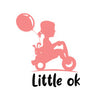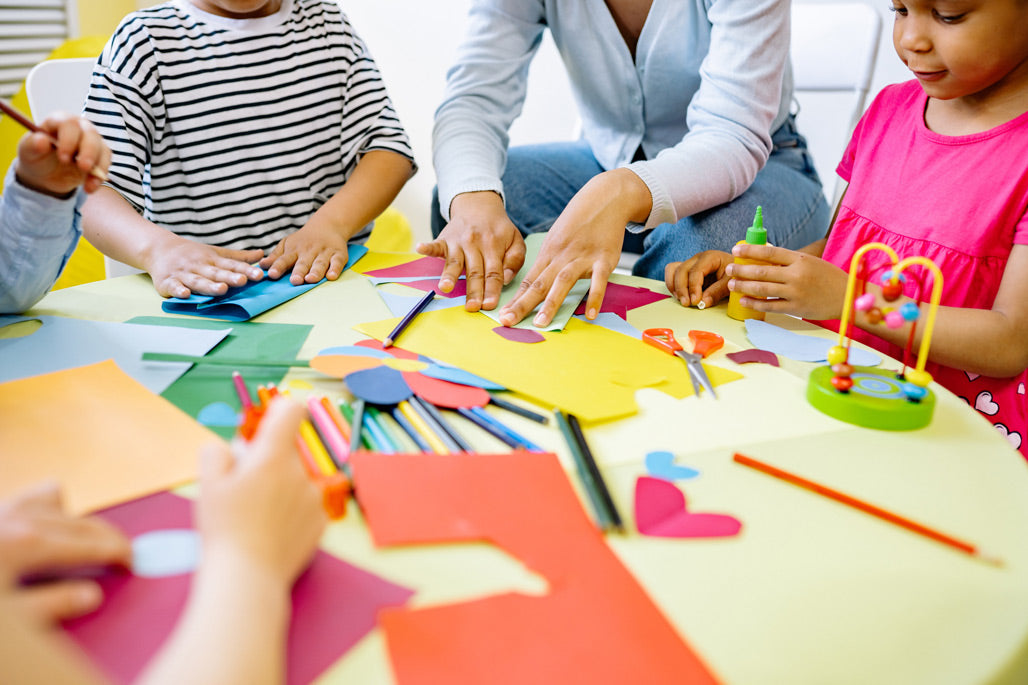- Total Rs. 0.00
10 Myths about Montessori Education
You might have come across Montessori education while looking for parenting tips, toys, or the name popped-up during conversations about kids schooling options.
What is the Montessori Education?
Montessori education is an educational approach that was developed by Italian physician and educator Maria Montessori in the late 19th and early 20th centuries. It is based on the belief that children are naturally curious and have a desire to learn, and that they are capable of directing their own learning and development.
“Montessori education is about guiding children to learn independently and reach their unique potential. Children have the freedom to engage in their own learning experience and the Montessori teacher (or parent) is there to support the child throughout this process.”
Maria Montessori
Montessori education emphasizes hands-on, experiential learning and a child-centered approach. In a Montessori classroom, children are given the freedom to choose their own activities and work at their own pace, within a structured environment that is designed to support their learning and development.
The Montessori method is based on the idea that children learn best through hands-on, sensory experiences, and that they are naturally motivated to explore and learn about their environment. Montessori classrooms are equipped with a range of materials and activities that are designed to stimulate children's senses and encourage them to explore and discover. These materials are carefully chosen to be developmentally appropriate and to support the child's learning and development in a variety of areas, including language, math, science, and practical life skills.
In a Montessori classroom, the teacher serves as a guide, facilitating the child's learning and helping to direct their attention to the materials and activities that are most appropriate for their age and development. The teacher observes the child's interests and abilities and helps to create a personalized learning plan that is tailored to the child's needs and goals.
Montessori education is characterized by a respectful and nurturing approach that values the child's individuality and promotes independence and self-motivation. It is based on the belief that children are capable of learning and growing at their own pace, and that they should be given the freedom and support to explore and learn in a way that is meaningful and engaging for them.
Overall, Montessori education is a highly effective and holistic approach to learning that is based on the belief that children are naturally curious and have a desire to learn. It is a child-centered approach that values the individuality and unique needs of each child and encourages them to explore, discover, and learn in a way that is meaningful and engaging for them.
Although society have lot of Myth about Montessori Education , we will explore some common myth below
- Montessori education is only for young children: While Montessori education is often associated with early childhood education, it can be applied to children of all ages. There are Montessori schools and programs for children from infancy through high school, and even some colleges and universities offer Montessori-based programs.
- Montessori education is only for gifted or talented children: Montessori education is not just for gifted or talented children. It is an approach that is based on the belief that all children are capable of learning and growing at their own pace, and that they should be given the freedom and support to explore and learn in a way that is meaningful and engaging for them.
- Montessori education is too structured: While Montessori classrooms are structured environments, they are not overly rigid or prescriptive. Children are given the freedom to choose their own activities and work at their own pace within a structured environment that is designed to support their learning and development.
- Montessori education is too permissive: Montessori education is not overly permissive. While children are given the freedom to choose their own activities and work at their own pace, there are clear rules and expectations in place to ensure a safe and respectful learning environment.
- Montessori education is not academically challenging: Montessori education is academically rigorous and challenging. It emphasizes hands-on, experiential learning and encourages children to think critically and creatively.
- Montessori education does not prepare children for traditional schools: Montessori education does prepare children for traditional schools and beyond. Studies have shown that Montessori students often outperform their peers on standardized tests and are well-prepared for the academic and social demands of traditional schools.
- Montessori education is too expensive: While Montessori education can be more expensive than traditional public schools, it is not necessarily out of reach for families with limited financial resources. Many Montessori schools offer programs more accessible to all income group.
- Montessori education is only for children of certain socio-economic backgrounds: Montessori education is not just for children of certain socio-economic backgrounds. While it may be more common in certain areas or among certain socio-economic groups, Montessori education is available to children of all backgrounds.
- Montessori education is not traditional: While Montessori education is not traditional in the sense that it does not follow a one-size-fits-all curriculum or approach, it is based on a long history of research and practice in education.
- Montessori education is not backed by research: There is a significant body of research that supports the effectiveness of Montessori education. Studies have shown that Montessori students often outperform their peers on standardized tests and demonstrate strong problem-solving and critical thinking skills.
Hopefully this blog clear all your doubt about Montessori Education.
Happy Parenting !

